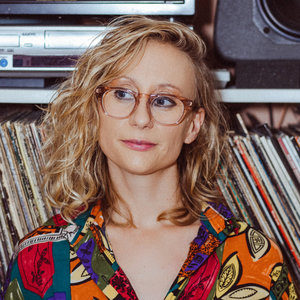
Jewly Hight
Music critic and journalist Jewly Hight has been based in Nashville for two decades. Often, she's interpreted developments in Nashville's music communities and industries for a national audience. Her work has appeared on NPR and in The New York Times, Los Angeles Times, New York Magazine/Vulture, The Guardian, Billboard, The Oxford American, Slate and numerous other outlets, and she's lent her expertise to a number of podcasts and documentaries. Hight landed her first book deal while studying religion, gender, sexuality, music and the South at Vanderbilt Divinity School, she was the inaugural winner of the Chet Flippo Award for Excellence in Country Music Journalism and she helped launch WNXP as its Editorial Director in 2020. Now Senior Music Writer for Nashville Public Radio, and working with a diverse Nashville audience in mind, she's created the organization's first limited podcast series focused on music, "Making Noise."